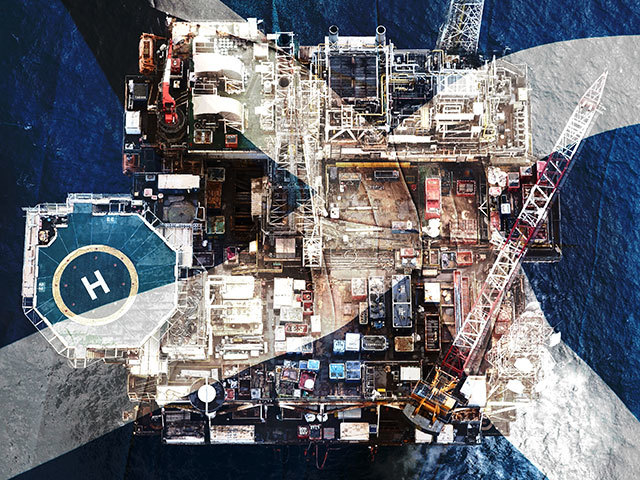
Former prime minister Gordon Brown has urged Scots to “think twice” before backing independence as he issued a stark warning that oil cash would only pay for a “fraction” of public services if the country left the UK.
The former Labour leader said while Scotland spent some £40billion a year on health, education, pensions and social security, forecasts had shown that, in the first year of independence, oil revenues would amount to £2.9billion.
With less than four weeks to go until voters north of the border decide if the country should become independent or stay in the UK, he told an audience in Glasgow that Scots benefit from higher levels of spending per person than in England.
With NHS funding based on need, he said £950million more came to Scotland than if health spending was determined solely by the size of the country’s population.
Health has become a key battleground in the independence campaign, with nationalists claiming the only way to protect the NHS from privatisation is to vote Yes on September 18.
Mr Brown said: “You’ve got to think twice about the benefits of throwing all this away with Alex Salmond’s proposals for separate national health services in Scotland, Wales, England and Northern Ireland.”
He argued: “There is no point in getting rid of the unified funding of national healthcare in our country.
“Scotland actually benefits from being part of the UK system of funding.
“Every year we spend in Scotland £2,115 on average for every single Scot, every man, woman and child. That’s about £40 a week on average is spent for the typical Scot on health care. In England the figure is £1,912.
“The reason is we fund our health service because of the needs of people.
“In a country with more pensioners, as Scotland has, more people who suffer from disabilities and with this wide range of rural areas, it is necessary to spend more in Scotland.
“But the fact is as a result of sharing the resources of the health service across the United Kingdom – and it is time the Scottish National Party admitted this – £900million and more is spent on the health service in addition to what an allocation based on population would allow.
“Why should we throw all this away, especially when we can spend the money in Scotland in any way we choose?”
With health decisions already devolved to the Scottish Parliament, Mr Brown continued: “The only person who can privatise the National Health Service in Scotland today is actually Alex Salmond, because it is in Scotland alone the decisions about the future allocation of resources and the private/public balance in the health service is made.”
He told the audience at the Emirates Arena that 87% of English people and 90% of Scots supported having a health service that is free at the point of need.
“There is no culture clash between Scots and English on that,” Mr Brown said.
“The Scottish people, the English people, the Welsh people, Northern Irish people, they love the idea of a National Health Service and we should fight together to preserve the National Health Service
“Why should we throw all this away when we know perfectly well that the SNP have not proved to us they could even fund the national health service properly?”
He said the UK Office for Budget Responsibility (OBR) had forecast that in 2016-17 – potentially the first year of an independent Scotland – oil revenues would be worth £2.9billion.
While the Scottish Government believes these could be higher at £7billion, Mr Brown said these figures had been challenged earlier this week by oil expert Sir Ian Wood, who claimed in his exclusive interview with Energy Voice that the nationalists had overestimated the amount that could be raised in oil revenues.
“Pensions cost £9billion a year in Scotland, the health service costs £12billion a year, education costs £6billion a year, the rest of the welfare state from child benefit to disability benefits cost another £13billion a year.
“£2.9billion in oil revenues to pay for £40billion of expenditure just on education, health, pensions and the rest of the welfare state.
“The oil revenues, to be honest, are a fraction of what we need to pay for our public services.”
Recommended for you
